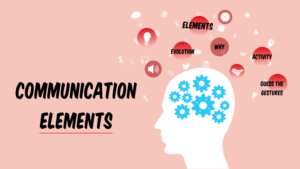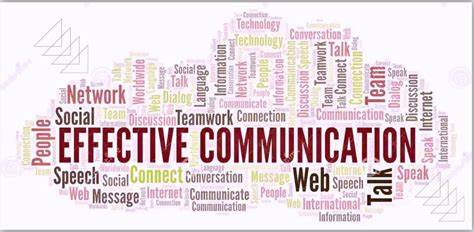The Foundation of Strong Relationships
Effective communication is the cornerstone of any strong relationship, whether personal, professional, or familial. It fosters understanding, resolves conflicts, and deepens emotional connections. Without clear communication, misunderstandings, frustrations, and conflicts can arise, potentially damaging the relationship. In this blog post, we’ll explore how you can build stronger relationships through effective communication, offering practical tips for fostering openness, trust, and clarity in your interactions.

1. Why Communication Is Key to Strong Relationships
Effective communication is more than just exchanging words. It’s about connecting emotionally, understanding each other’s needs, and fostering trust. Here’s why it’s so crucial:
- Encourages Understanding: By communicating openly and honestly, people can better understand each other’s thoughts, feelings, and perspectives.
- Builds Trust: When people feel heard and valued, trust naturally develops, creating a foundation for long-lasting relationships.
- Resolves Conflicts: Clear communication can prevent misunderstandings and quickly resolve conflicts before they escalate.
2. The Elements of Effective Communication

1. Active Listening
Active listening involves fully focusing on the speaker, understanding their message, responding thoughtfully, and withholding judgment. It’s one of the most critical components of effective communication. Tips for active listening include:
- Maintain Eye Contact: Show the speaker that you’re engaged.
- Avoid Interrupting: Allow the speaker to express their thoughts fully.
- Reflect Back: Summarize or reflect on what you’ve heard to show that you understand.
2. Clear and Concise Expression
Communicating your thoughts and feelings clearly and concisely helps avoid misunderstandings. Be specific about what you mean and avoid ambiguity. If your message is clear, it’s easier for others to respond appropriately.
3. Nonverbal Communication
Nonverbal cues, such as body language, facial expressions, and tone of voice, play a significant role in effective communication. Make sure your nonverbal signals match your words. Positive body language—like nodding, smiling, and maintaining an open posture—reinforces your message and shows attentiveness.
4. Empathy
Empathy involves putting yourself in the other person’s shoes and seeing things from their perspective. Empathetic communication fosters deeper connections and helps people feel understood and validated.
5. Patience and Openness
Effective communication requires patience, especially during difficult conversations. Being open to others’ perspectives without becoming defensive allows for more productive dialogue and helps build stronger relationships.
3. Practical Steps to Improve Communication in Relationships
Building stronger relationships through communication is a skill that can be developed over time. Here are some practical steps:
1. Set Aside Time for Meaningful Conversations
In our busy lives, it’s easy to let communication fall by the wayside. Schedule regular, uninterrupted time for meaningful conversations, whether it’s with your spouse, friends, or colleagues. This shows the other person that you prioritize the relationship.
2. Ask Open-Ended Questions
Open-ended questions encourage deeper conversations and allow the other person to express their thoughts more fully. Instead of asking “Did you have a good day?” try “What was the most interesting part of your day?”
3. Practice Gratitude and Appreciation
Expressing gratitude and appreciation can strengthen relationships by showing the other person that you value them. Even small gestures, like saying “thank you” or offering compliments, can have a significant impact.
4. Be Mindful of Your Tone
Your tone of voice can drastically affect how your message is received. Ensure that your tone aligns with the sentiment you wish to convey. A calm, warm tone can prevent misunderstandings and ease tense conversations.
5. Resolve Conflicts with Respect
Conflict is inevitable in any relationship, but how it’s handled can make all the difference. Approach disagreements with respect and a willingness to listen. Focus on finding a resolution rather than “winning” the argument.

4. Overcoming Communication Barriers
Sometimes, communication can break down due to various barriers, such as misunderstandings, assumptions, or emotional stress. Here’s how to overcome common communication barriers:
1. Avoid Assumptions
Assumptions can lead to misinterpretations. Instead of assuming how the other person feels or what they’re thinking, ask questions for clarity.
2. Manage Stress and Emotions
Stress and emotions can cloud judgment and interfere with communication. Take a break if a conversation becomes too heated, and return to it when both parties are calmer.
3. Be Aware of Cultural Differences
In multicultural relationships, it’s important to be aware of and sensitive to cultural differences in communication styles. What might seem acceptable in one culture could be misinterpreted in another.
4. Use “I” Statements
When discussing sensitive topics, use “I” statements to express how you feel without blaming or accusing the other person. For example, “I feel hurt when you cancel plans last minute,” rather than, “You always cancel plans.”
5. How Effective Communication Enhances Different Types of Relationships
1. Romantic Relationships
In romantic relationships, communication is vital for intimacy and trust. Couples who communicate openly about their needs, desires, and concerns are better able to navigate challenges and build a strong emotional bond.
2. Friendships
Friendships thrive on mutual understanding and support. Effective communication helps friends navigate life changes, resolve conflicts, and offer emotional support, creating stronger, longer-lasting connections.
3. Family Relationships
Strong family relationships depend on clear communication about expectations, responsibilities, and emotions. Families who prioritize communication can better navigate life’s ups and downs together.
4. Professional Relationships
In the workplace, clear communication fosters teamwork, reduces misunderstandings, and improves productivity. It also promotes a positive work environment where employees feel heard and valued.
6. The Long-Term Benefits of Effective Communication
The long-term benefits of effective communication in relationships are profound. Over time, it leads to:
- Deeper Connections: Relationships based on open and honest communication become more fulfilling and meaningful.
- Trust and Security: Clear communication builds trust, allowing individuals to feel secure in their relationships.
- Emotional Resilience: Strong communication helps people navigate challenges and conflicts more effectively, fostering emotional resilience in the relationship.
Conclusion
Building stronger relationships through effective communication is an ongoing process that requires effort, patience, and understanding. By focusing on active listening, clear expression, empathy, and nonverbal cues, you can foster deeper, more meaningful connections in every relationship.
Whether it’s in a romantic, familial, or professional context, prioritizing communication will strengthen your relationships, prevent misunderstandings, and create a foundation of trust and respect. Commit to improving your communication skills, and watch as your relationships flourish and grow stronger.






